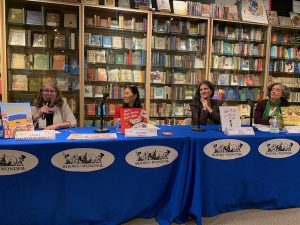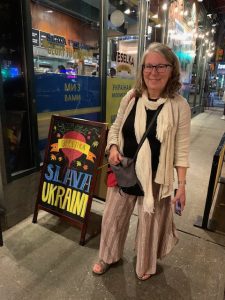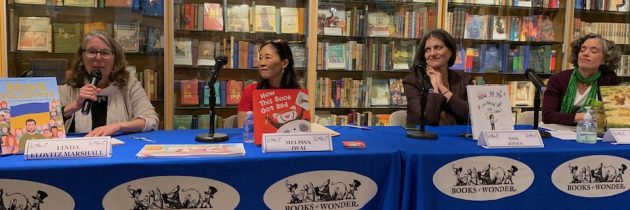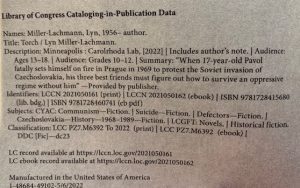From Banned Books to No Books
This year’s Banned Books Week, October 1-7, is not as much a time for celebrating books as fighting against the startling increase in book banning across the country. According to PEN America’s report “Banned in the USA: The Mounting Pressure to Censor”:
In the 2022–23 school year, from July 1, 2022, to June 31, 2023, PEN America recorded 3,362 instances of book bans in US public school classrooms and libraries. These bans removed student access to 1,557 unique book titles, the works of over 1,480 authors, illustrators, and translators.
Along with efforts to pull books off shelves, would-be censors and their allies in some state legislatures have criminalized the act of making banned books available to young readers. And since no one can predict which books will be challenged — Elana K. Arnold’s sweet chapter book series beginning with A Boy Called BAT was temporarily banned in York, PA, and the Bible was challenged in a Utah school district — these arbitrary and draconian laws create a climate of fear that affects all books and library services.

The Books of Wonder panel featuring, from left, Linda Elovitz Marshall, Melissa Iwai, Noa Jones, and Caron Levis, talking about their brand-new picture books.
Last night I celebrated today’s publication of Brave Volodymyr: The Story of Volodymyr Zelensky and the Fight for Ukraine with its author, Linda Elovitz Marshall. At dinner after her reading at Books of Wonder, she asked me if school district or public library challenges would increase a book’s sales, a common question. I told her, “You do not want your book to be banned. A handful of books have higher sales from banning, but most disappear without a trace.” I said that the threat of book banning prevents librarians from ordering that or similar books in the first place. For example, the publisher Levine Querido — a major publisher of children’s books that highlight marginalized communities and experiences — has reported a 30% sales decrease in the past year because of book bans.

Linda celebrates the launch of Brave Volodymyr at East Village’s classic Ukrainian restaurant Veselka.
I can’t say a lot about my experience with book banning because it doesn’t involve my own books but my freelance curriculum and textbook work that’s covered by non-disclosure agreements, but I can speak in general terms. And if there’s a single point I want to make, it’s that book bans, combined with an extremist understanding of the “science of reading”, threaten the entire practice of free reading altogether. If the book banners get their way, our young people would read nothing except a narrow, centrally-created and ideologically-consistent selection of textbooks that would prioritize basic skills and nothing more. For the mass of citizens, instruction would focus on decoding, with reading comprehension limited to a fifth or sixth grade level — enough to understand and follow instructions but not enough to criticize those in power who issue the instructions. Under those circumstances, the entire ecosystem around children’s book publishing would collapse.
We need to understand that reading makes a difference. It grows independent minds. Why are there no similar efforts to ban TV shows, movies, and video games? Yes, those carry ratings, but so do books. Every book review, as well as the cataloging information on the verso of each book’s copyright page, contains an age range for which the book is recommended. Despite the fact that I’m a huge indie film buff, I know there’s a cognitive difference between books and visual media. Books invite contemplation and critical thinking in a way that films don’t. In most cases, as the popular t-shirt reads, the book really was better.
I like to think of the larger context in terms of political issues, and in this case, that means seeing reading as resistance. It means not only celebrating and defending the most-commonly banned books but also celebrating and defending all books — because ultimately, the censors want to close the libraries and classroom collections and then move on to the bookstores (as Texas’s HB 900 law does), thus taking all the books away.
*
In my efforts to promote other works of historical fiction for tween and teen readers, I recently had an article published on Shepherd.com featuring “The Best Novels for Tweens and Teens on Russian/Soviet Aggression in Eastern Europe.” And I’m pleased to announce that Torch was featured on another Shepherd.com list, “The Best Books to Make You a Teenage Radical,” contributed by Amanda West Lewis, the author of the YA historical novel Focus. Click. Wind, set among 1960s radicals in New York City and Toronto.








Just yesterday, a read a post by Zetta about how her books were challenged. Really sad.